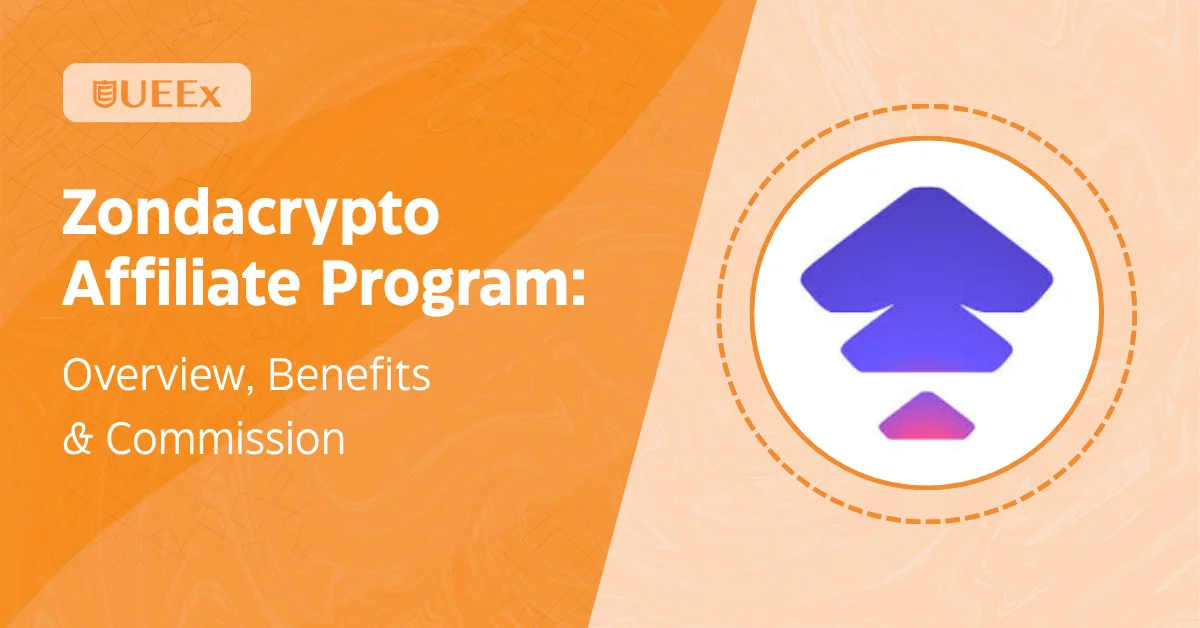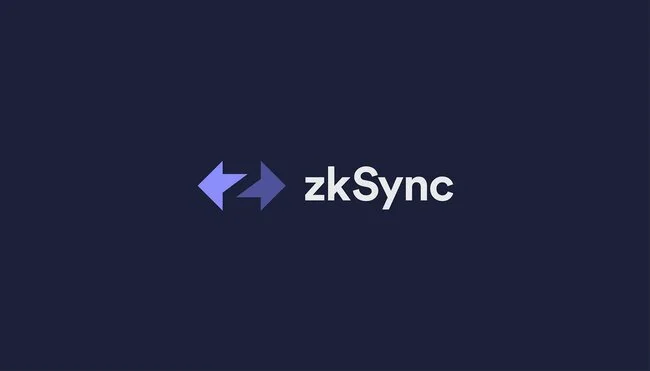Smart contracts on blockchain technology have changed how we execute transactions and manage agreements as they offer unprecedented levels of automation, transparency, and security in digital interactions.
With a staggering 300% growth in the adoption of blockchain technology since 2020, these self-executing contracts are not just a passing trend; they are reshaping industries from finance to healthcare.
Imagine a future where contracts execute automatically, ensuring transparency, security, and efficiency without the need for intermediaries. Want to find out more? Continue reading.
Key Takeaways
- Smart contracts automate processes by executing predefined actions without the need for intermediaries. This enhances operational efficiency across various industries.
- Built on blockchain technology, smart contracts provide a secure framework for agreements to ensure that all parties can verify execution without the risk of tampering.
- Smart contracts can be applied in multiple sectors, including healthcare, finance, real estate, and supply chain management.
- Despite their benefits, smart contracts face challenges related to scalability, legal recognition, interoperability, and user adoption
What are Smart Contracts on Blockchain?
Source: Kwik Attorneys LP
Smart contracts on blockchain are self-executing contracts with the terms of the agreement directly encoded in computer code. They run on decentralized blockchain networks, which provide the underlying infrastructure that ensures security, transparency, and immutability.
They enable automated and transparent execution of contractual clauses when predetermined conditions are met. Unlike traditional contracts, which require intermediaries such as lawyers or notaries, smart contracts execute independently, minimizing the risk of human error and enhancing trust among the parties involved.
Essentially, they serve as digital scripts that enforce the terms of an agreement and provide both parties with assurance that the contract will be executed exactly as intended.
Computer scientist Nick Szabo first introduced the concept of smart contracts in the 1990s. Szabo envisioned a system where contractual agreements could be automated digitally, laying the groundwork for what would later become blockchain technology.
However, it wasn’t until the advent of Bitcoin in 2009 and the subsequent launch of Ethereum in 2015 that smart contracts began to gain traction. Ethereum’s platform was specifically designed to facilitate the creation and execution of smart contracts, allowing developers to build decentralized applications (dApps) that leverage these automated agreements.
Key Characteristics of Smart Contracts
Here are some key characteristics and functions of smart contracts:
Self-Execution
Smart contracts automatically execute actions when predetermined conditions are met. For example, a smart contract could transfer funds from one party to another once specific criteria, such as a date or event, are fulfilled.
Decentralization
Unlike traditional contracts that require intermediaries, smart contracts operate on decentralized networks. This eliminates the need for middlemen (like lawyers or banks), reducing costs and speeding up processes. For example, in a decentralized finance (DeFi) lending platform, borrowers can automatically receive funds directly from lenders without requiring a bank to facilitate the transaction.
Transparency
In a charity donation system using smart contracts, donors can verify how their contributions are distributed, ensuring accountability and transparency in fund allocation. Once deployed on a blockchain, the terms and conditions of a smart contract are visible to all participants in the network. This transparency helps build trust among parties, as everyone can verify the contract’s execution.
Immutability
Smart contracts, once created, cannot be altered or deleted. This ensures that the terms of the contract remain consistent and provides a secure audit trail of all actions taken. For instance, if a smart contract is used to facilitate an insurance claim, the immutable nature ensures that the agreed-upon payout terms remain unchanged even if one party tries to contest them later.
Security
The cryptographic nature of blockchain technology protects smart contracts from tampering and fraud. Transactions are validated and recorded in a way that is secure and difficult to alter. In a supply chain management system, a smart contract can track the movement of goods, ensuring that no one can tamper with the record of where and when the goods were delivered.
“The beauty of smart contracts lies in their ability to ensure transparency and accountability, as all parties have access to the same immutable record on the blockchain.”
How Smart Contracts Work
Source: Freepik
Smart contracts are built on blockchain technology, which is a decentralized and distributed ledger system that records transactions across multiple computers. This structure ensures that all participants in the network have access to the same information, reducing the risk of fraud and manipulation.
Blockchains use blocks to store data and are secured through cryptographic hashes, which link each block to the previous one, creating a secure chain of information. The decentralized nature of blockchain eliminates the need for a central authority, allowing for greater transparency and security in transactions.
Cryptography in Smart Contracts
Cryptography plays a vital role in ensuring the security and integrity of smart contracts. Each contract is encoded with cryptographic algorithms that protect the data and the rules governing its execution. Key cryptographic techniques include:
- Hashing: This process converts input data into a fixed-size string of characters, making it impossible to reverse-engineer the original data. Hashing is used to secure transaction data and maintain the integrity of the blockchain.
- Digital Signatures: These are used to verify the identity of parties involved in a contract. Each party signs the contract with their private key, creating a unique digital signature that can be verified using their public key, so only authorized parties can execute the contract.
- Encryption: Sensitive data can be encrypted within a smart contract, ensuring that only authorized users can access it, thereby maintaining privacy and security.
Mechanisms of Execution
Smart contracts are designed to execute automatically when predefined conditions are met. The execution process involves several steps:
- Contract Deployment: The smart contract is written in code and deployed onto the blockchain network, becoming immutable and accessible to all participants.
- Condition Monitoring: The smart contract continually monitors the specified conditions for execution. This can include checking data from external sources or waiting for specific triggers.
- Execution Trigger: Once the conditions are met, the smart contract automatically executes the defined actions, such as transferring assets or sending notifications, without the need for human intervention.
- Recording Transactions: The results of the execution are recorded on the blockchain, ensuring a transparent and tamper-proof record of the contract’s actions.
“Smart contracts represent a revolutionary shift in how agreements are executed, enabling trustless transactions and automating processes that traditionally required intermediaries.”
Oracles and Their Role
Oracles are third-party services that provide external data to smart contracts, allowing them to interact with the outside world. They act as a bridge between blockchain environments and real-world data.
For instance, in a smart contract for a weather-dependent insurance policy, an oracle can supply accurate weather data to determine whether a payout should be made. Oracles can be classified into:
- Centralized Oracles: These rely on a single source for data, which can create potential vulnerabilities and points of failure.
- Decentralized Oracles: These aggregate data from multiple sources, enhancing reliability and security by reducing the risk of manipulation.
- Inbound and Outbound Oracles: Inbound oracles send data to the blockchain, while outbound oracles retrieve information from the blockchain and relay it to external systems.
Programming Languages Used
Here are some of the programming languages used to build smart contracts on blockchain:
Solidity
Solidity is the most widely used programming language for writing smart contracts on the Ethereum platform. Its syntax is similar to JavaScript, making it accessible for developers familiar with web development. Solidity supports features like inheritance, libraries, and complex user-defined types, enabling the creation of robust and scalable smart contracts.
Vyper
Vyper is another programming language for Ethereum smart contracts, designed to be more secure and simpler than Solidity. It emphasizes readability and auditability, making it easier for developers to write secure code. Vyper lacks certain features found in Solidity, such as inheritance and function overloading, which reduces complexity and potential vulnerabilities.
Other Languages
While Solidity and Vyper are the primary languages for Ethereum smart contracts, other platforms use different programming languages, including:
- Rust: Used for smart contracts on the Solana and Polkadot blockchains, Rust provides safety and performance benefits, making it suitable for high-performance applications.
- Michelson: The language used for writing smart contracts on the Tezos blockchain, Michelson is a low-level stack-based language that allows for precise control over contract execution.
- Chaincode: Used in Hyperledger Fabric, Chaincode is written in languages like Go and JavaScript, enabling the creation of smart contracts in a permissioned blockchain environment.
“While the benefits of smart contracts are clear, the challenges they face, particularly in legal and technical systems, must be addressed for widespread adoption to take place.”
Types of Smart Contracts on Blockchain
Source: CELL FOR LAW AND TECHNOLOGY
Here are some of the types of smart contracts on blockchain:
Public Smart Contracts
These contracts are deployed on public blockchains, such as Ethereum, where anyone can view, interact with, and utilize them. Public smart contracts promote transparency and trust, as all transactions are recorded on a publicly accessible ledger. However, they may expose sensitive data and rely on a broader audience for validation and execution.
Private Smart Contracts
In contrast, private smart contracts are executed on permissioned blockchains, restricting access to a select group of participants.
This approach allows organizations to maintain greater control over their data and the execution environment, ensuring privacy and confidentiality. Private smart contracts are often used in enterprise settings where regulatory compliance and data protection are critical.
Types Based on Functionality
Smart contracts can also be classified according to their complexity and the functions they perform.
Simple Agreements
Simple smart contracts are straightforward and typically involve basic transactions or conditions. These contracts may execute simple actions such as:
- Token Transfers: Automatically transferring digital assets from one party to another when specific conditions are met, such as a payment being received.
- Escrow Services: Holding funds in escrow until both parties fulfill their obligations, ensuring that transactions are completed fairly.
- Basic Condition Checks: Executing actions based on simple true/false conditions, such as verifying the completion of a task or a deadline.
Complex Agreements
Complex smart contracts incorporate multiple conditions and can interact with other contracts or external data sources. Examples include:
- Multi-Signature Agreements: Requiring multiple parties to authorize a transaction before it can be executed, enhancing security in collaborative environments.
- Decentralized Autonomous Organizations (DAOs): Smart contracts that govern the operations of a DAO, enabling collective decision-making and resource management without centralized authority.
- Insurance Contracts: Automatically processing claims based on data from oracles, such as weather conditions for crop insurance, allowing for quicker payouts when conditions are met.
Use Cases of Smart Contracts
Source: Freepik
Different industries leverage smart contracts to streamline processes, enhance transparency, and reduce costs.
Financial Services
In the financial sector, smart contracts enable a range of applications, including:
- Decentralized Finance (DeFi): Smart contracts power various DeFi platforms, facilitating lending, borrowing, and trading without intermediaries. This democratizes access to financial services and reduces costs.
- Automated Payments: Enabling automated transactions for recurring payments or settling financial derivatives, ensuring timely execution based on market conditions.
- Compliance and KYC: Streamlining Know Your Customer (KYC) processes through automated verification, allowing financial institutions to meet regulatory requirements efficiently.
Supply Chain Management
Smart contracts enhance supply chain operations by automating and securing transactions, such as:
- Provenance Tracking: Ensuring the authenticity and origin of products through transparent tracking of goods as they move through the supply chain.
- Automated Payments: Releasing payments to suppliers upon delivery verification, reducing delays and improving cash flow for businesses.
- Inventory Management: Monitoring stock levels and automatically triggering orders when supplies fall below a certain threshold.
Real Estate
In real estate, smart contracts simplify transactions and enhance transparency through:
- Property Transfers: Automating the transfer of property ownership once payment conditions are met, reducing the need for intermediaries and paperwork.
- Rental Agreements: Automatically manage rental payments and deposits, providing tenants and landlords with a transparent record of transactions.
- Title Management: Storing property titles on the blockchain, ensuring secure and verifiable ownership records while reducing the risk of fraud.
Healthcare
In the healthcare sector, smart contracts can transform how patient data is managed and insurance claims are processed:
- Patient Data Management: Smart contracts facilitate secure, decentralized storage and sharing of medical records where patient data can be encrypted and stored in a tamper-proof manner.
- Insurance Claims Processing: When an insured event occurs, a smart contract can automatically verify the conditions of the policy and assess the claim against predefined criteria. Once verified, it can trigger automatic payments to the policyholder or healthcare provider, significantly enhancing customer satisfaction and reducing administrative costs.
Voting Systems
Smart contracts offer innovative solutions for electoral processes, enhancing transparency and security:
- Electoral Transparency: Smart contracts ensure transparency in voting systems by securely recording all votes on a tamper-proof blockchain.
- Secure Voting Mechanisms: Smart contracts provide secure voting methods that protect against unauthorized access and manipulation. Voters can cast their ballots using cryptographic keys, ensuring confidentiality and secure linkage to their identities.
Benefits of Smart Contracts
Source: Freepik
Here are some of the benefits of smart contracts:
Increased Efficiency and Speed
Smart contracts significantly enhance the efficiency of transactions by automating processes that traditionally require manual intervention. This automation leads to faster execution times, as actions can be triggered immediately once the specified conditions are met.
For instance, in financial transactions, payments can be processed instantly without the delays associated with bank approvals or intermediaries. By eliminating time-consuming paperwork and administrative tasks, smart contracts allow businesses to streamline their operations, ultimately speeding up processes across various sectors.
Cost Reduction
The implementation of smart contracts can lead to substantial cost savings for organizations. By removing the need for intermediaries, such as lawyers, banks, or notaries, companies can reduce transaction fees and administrative expenses.
Additionally, the automated nature of smart contracts minimizes the likelihood of errors, which can be costly to rectify. Organizations can also benefit from lower operational costs, as fewer resources are needed to manage and oversee contractual agreements.
Enhanced Security
Security is a paramount advantage of smart contracts, primarily due to the underlying blockchain technology. The decentralized nature of blockchain provides robust protection against fraud and unauthorized alterations.
Smart contracts are encrypted and stored on the blockchain, ensuring that once deployed, they cannot be modified or tampered with.
Moreover, the use of cryptographic signatures ensures that only authorized parties can execute contract functions. This enhanced security is particularly beneficial in industries where sensitive data and financial transactions are prevalent, such as finance and healthcare.
Transparency and Trust
Smart contracts promote transparency among all parties involved in an agreement. The terms of the contract are written in code and stored on a public or permissioned blockchain, allowing all participants to verify the contract’s conditions and execution.
This transparency builds trust between parties, as they can independently confirm that the contract is being honored without relying on a third party. In industries like supply chain management, this trust is critical, as stakeholders can track the movement of goods and verify that all parties are adhering to agreed-upon standards.
Automation of Processes
One of the most significant benefits of smart contracts is their ability to automate various processes, reducing the need for human intervention. By defining specific triggers and conditions, smart contracts can execute actions such as payment transfers, data updates, and notifications automatically.
This automation not only speeds up processes but also reduces the potential for human error.
Additionally, automated smart contracts can streamline workflows in industries such as insurance, where claims processing can be handled more efficiently. As a result, organizations can focus their human resources on more strategic tasks, improving overall productivity.
“As blockchain technology continues to evolve, the integration of smart contracts with emerging technologies like AI and IoT will unlock unprecedented efficiencies and new business models.”
Challenges of Smart Contracts on Blockchain
Source: Freepik
Here are some of the challenges and limitations of smart contracts on blockchain:
Scalability Issues
One of the primary technical challenges facing smart contracts is scalability. As the number of transactions on a blockchain network increases, the time and resources required to process each transaction can lead to congestion and slower performance.
This is particularly evident in public blockchains like Ethereum, where high demand can result in increased transaction fees and delays. Solutions such as layer 2 scaling solutions and sharding are being explored to enhance scalability, but these approaches are still in development and may take time to implement effectively.
Security Vulnerabilities
While smart contracts offer enhanced security through blockchain technology, they are not immune to vulnerabilities. Poorly written code can lead to exploits, resulting in significant financial losses.
High-profile hacks, such as the DAO hack in 2016, have highlighted the potential risks associated with smart contracts. Moreover, vulnerabilities in the underlying blockchain protocol can also pose risks to smart contracts. Ongoing security audits and best practices in development are crucial to mitigate these risks and ensure the reliability of smart contracts.
Legal and Regulatory Challenges
The legal status of smart contracts remains uncertain in many jurisdictions. As these contracts operate autonomously and without intermediaries, it can be challenging to determine liability in cases of disputes or failures.
Furthermore, the lack of established legal frameworks may deter businesses from adopting smart contracts, fearing potential regulatory repercussions. Governments are beginning to explore regulations for blockchain technology and smart contracts, but comprehensive legal guidelines are still needed to foster trust and encourage wider adoption.
Interoperability Issues
Interoperability refers to the ability of different blockchain networks and smart contracts to communicate and work together seamlessly. Currently, many smart contracts are tied to specific platforms, limiting their functionality and potential.
The lack of standardization across different blockchain ecosystems can hinder the development of complex applications that require interaction between multiple networks. Efforts to create interoperability solutions, such as cross-chain protocols, are underway but face significant technical hurdles that must be overcome for widespread implementation.
User Understanding and Adoption
The complexity of smart contracts can be a barrier to user understanding and adoption. Many potential users, including businesses and individuals, may lack the technical knowledge required to effectively utilize smart contracts.
Misconceptions about blockchain technology and its capabilities can lead to skepticism and reluctance to embrace smart contracts. Education and awareness initiatives are essential to help demystify smart contracts and highlight their benefits, ultimately driving greater adoption across various industries.
Future Trends and Innovations
Here are some of the future trends and innovations that can be expected in smart contracts on blockchain:
Artificial Intelligence
Artificial intelligence (AI) has the potential to significantly enhance smart contracts by enabling them to process and analyze vast amounts of data in real-time. AI can be used to automate decision-making processes within smart contracts, allowing them to adapt to changing conditions and make informed choices without human intervention.
For example, in finance, AI-driven smart contracts could assess market trends and adjust parameters in real-time to optimize trading strategies. Additionally, machine learning algorithms can improve the security of smart contracts by identifying vulnerabilities and suggesting improvements based on historical data.
Internet of Things (IoT)
The integration of smart contracts with the Internet of Things (IoT) can facilitate automated transactions between connected devices, creating a seamless ecosystem of interactivity. For instance, smart contracts can govern the interactions between smart appliances and energy suppliers, allowing for dynamic pricing based on real-time usage data.
In supply chain management, IoT devices can track the movement of goods and automatically trigger smart contracts to release payments or reorder inventory based on predefined conditions. This synergy between smart contracts and IoT can lead to greater efficiency and reduced operational costs.
Conclusion
Smart contracts on blockchain are a transformative innovation that offers increased efficiency, cost reduction, enhanced security, and improved transparency. Their application spans various industries, including healthcare, finance, real estate, and supply chain management, demonstrating their versatility and potential to streamline processes.
Despite challenges such as technical scalability, legal uncertainties, and user understanding, the evolution of smart contracts is underway, with integration into emerging technologies like artificial intelligence and the Internet of Things poised to further enhance their capabilities.
The integration of smart contracts with cutting-edge technologies will lead to more sophisticated applications and broader adoption across diverse sectors and consumers should educate themselves to make informed decisions in their engagements with the technology.
FAQs
What are the key advantages of using smart contracts?
Smart contracts offer increased efficiency by automating processes, reduced costs by eliminating intermediaries, enhanced security through encryption and immutability, improved transparency by allowing all parties to view the contract, and the ability to automate workflows, freeing up resources for more strategic activities.
How do smart contracts ensure security and trust?
Smart contracts utilize blockchain technology to provide security and trust. Once deployed, the contract code is immutable and tamper-proof, meaning that it cannot be altered. Additionally, transactions are recorded on a decentralized ledger, ensuring transparency and allowing all participants to verify the contract’s execution, which builds trust among the parties involved.
What types of industries can benefit from smart contracts?
Smart contracts can benefit a variety of industries, including healthcare for managing patient data and insurance claims, finance for decentralized finance (DeFi) applications, real estate for automating property transactions and rental agreements, and supply chain management for tracking goods and automating payments based on predefined conditions.
What challenges do organizations face when implementing smart contracts?
Organizations may face several challenges when implementing smart contracts, including technical issues such as scalability and security vulnerabilities, legal and regulatory uncertainties regarding liability and enforceability, interoperability problems between different blockchain networks, and a lack of understanding among users that can impede adoption.







